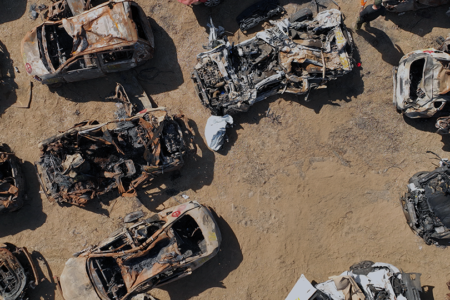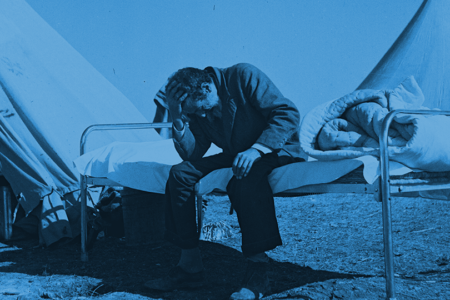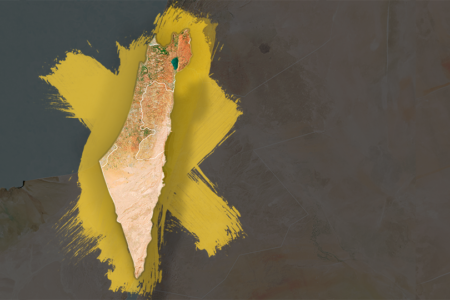The Life, Times And Message Of Isaiah The Prophet PART XXX
ISAIAH, CHAPTER 38
Hezekiah’s Near Fatal Illness and His Miraculous Recovery
1 In those days Hezekiah became ill unto death, and Isaiah the son of Amoz the prophet, came to him and said: thus says the LORD: Make thy will known to thy house, for thou shalt die, and not live.
2 And Hezekiah turned his face to the wall and prayed to the LORD and said:
3 Do remember, O LORD, I beseech thee, how I have walked before Thee in truth and with a whole heart, and have done that which is good in Thy sight. And Hezekiah wept bitterly.
4 And the word of the LORD came to Isaiah saying,
5 Go and say to Hezekiah, thus says the Lord, the God of David thy Father, I have heard thy prayers, I have seen thy tears, behold I will add to thy days fifteen years.
6 And I will deliver thee and this city from the hand of the king of Assyria and I will protect this city.
7 And this will be for a sign unto thee from the LORD, that the LORD will do the thing which he has spoken:
8 Behold, I will cause the shadow of the sun dial which is gone down on the sun dial of Ahaz to turn backward ten degrees. So the sun returned ten degrees, by the degrees which it went down.
9 The writing of Hezekiah, when he had been sick and recovered from his sickness.
10 I said: In the midst of my days I shall depart,
Even into the gates of sheol.
I am deprived of the balance of my years.
11 I said: I shall not see the LORD,
The LORD in the land of the living.
I shall no longer behold man
Together with the inhabitants of the world.
12 My habitation is broken up and carried away from me
Like the tent of a shepherd.
I have rolled up my life like a weaver,
He will cut me off from the loom.
From day to night Thou wilt make an end of me.
13 I waited until morning like a lion,
So he broke all my bones.
From day to night Thou makest an end of me.
14 Like a swallow (or) a crane so have I chirped,
I cooed like the dove,
Mine eyes fail from looking up.
O LORD, I am hard pressed, come Thou to my rescue!
15 What shall I say?
He has spoken to me and He has also done it,
I shall walk softly because of the bitterness of my soul.
16 O LORD, by these things men live,
And the life of my spirit is in them.
Wherefore restore thou me and let me live.
17 Behold my deep bitterness has turned into my salvation,
And Thou in Thy love for my soul
Has spared it from the pit of corruption.
18 For Sheol shall not praise Thee,
Neither shall death exalt Thee.
They that go down into the pit
Can not hope for Thy Truth.
19 The living, the living, he shall praise Thee,
as I do this day.
The father to his children shall make known the truth.
20 O LORD, come to my help.
We will sing in the house of the Lord to stringed musical instruments
All the days of our life.
21 And Isaiah said, let them bake a fig cake and apply it to the boil and he shall recover.
22 And Hezekiah said: What is the sign that I shall (yet) go up to the house of the LORD?
Author’s Translation
Comment:
The chapter describes the grave illness of Hezekiah, his prayer for recovery and God’s answer through Isaiah that the king’s prayer had been heard and that he will live another fifteen years.
This incident is recorded in a parallel passage in 2 Kings 20:1-11, with only slight variations, and with the omission of Hezekiah’s meditation. (verses 9-20).
1 In those days. . . .
That is before Sennacherib attempted to force Jerusalem into submission.
Make thy will known to thy house . . . KJV: set thy house in order.
The Hebrew verb “Tsav”-command, is a technical term for making one’s last will and testament in expectation of death.
2 . . . his face to the wall and prayed. . . .
We can imagine the dying king, surrounded by his family and highest officials. Hezekiah in his distress sought privacy in order to communicate with his God alone.
3 Hezekiah wept bitterly
At the age of 39, with his people facing an invasion by the terrible Assyrians, the king felt that his death would not only be a personal disaster, but also for his people.
4-6 The Answer to Hezekiah’s Prayer
4 The God of thy father David. . . .
The Lord answers the prayer of Hezekiah, not only for his own sake, but also for the sake of his ancestor David, with whom God made a covenant (II Samuel 7:4-17).
5 I have heard thy prayers, I have seen thy tears. . . .
The verdict pronounced by Isaiah: “Thou shalt die and not live” (v. 1) as not absolute. The Lord is responsive to earnest prayer.
The effectual, fervent prayer of a righteous man availeth much. James 5:16
6 I Will deliver the city, I will protect the city
Hezekiah’s prayer and tears were apparently not merely for himself, but for his beloved Jerusalem.
7-8 The sign given to Hezekiah:
In the more detailed account of this incident in 2 Kings, it was Hezekiah himself who asked the prophet for a sign from the Lord that he would truly recover. His request was granted. The sign was to be that the shadow on the steps of Ahaz would go back ten degrees or ten steps. The Hebrew word “maaloth” means either “steps” or “degrees.”
We do not know whether Ahaz actually had a sundial, or whether the shadow of an obelisk or column, which fell on the steps of the royal palace marked the time of day for the king as he looked out of his window. What happened was an extraordinary event, which defies the laws of nature.
It is interesting to note that Hezekiah did ask for a sign, in contrast to his ungodly father Ahaz, who hypocritically refused to ask for a sign (Isaiah 7:12). Hezekiah confirmed his sincerity by his request.
9-20 Hezekiah’s Meditation
9 The writing of Hezekiah
The writing or composition of Hezekiah is a touching account of the inner thoughts and emotions of a man who looked death in the face and at the last moment was reprieved.
10 In the midst of my days. . . .
Literally the Hebrew reads, “In the stillness of my days,” apparently an allusion to the rest period, or noontime siesta in a hot climate.
I shall depart to the gates of sheol. . . .
Sheol, often translated grave, pit, hell, netherworld, is a place of disembodied ghosts where the dead lead a shadowy existence. (See comment on Isaiah 14:15)
12 My habitation is broken up. . . .
The verse expresses the transitory nature of life and the finality of death.
13-14 In striking metaphors Hezekiah expresses the torment of his soul, his hopes and frustrations and ends with the pathetic cry:
O Lord, I am hard pressed, come to my rescue!
The Hebrew words of this cry convey the anguish of a man who is sorely harassed by his enemies or by his creditors, and looks for a friend to bail him out.
16-17 The meditation of a thankful heart
The Hebrew of this passage is not quite clear, and translators differ in their interpretations. Our translation suggests the closest meaning of the original text.
15 What shall I say?
God has spoken and has kept His promise to Hezekiah to heal him. This has made Hezekiah so deeply grateful that he is unable to express his feelings. He can only remember his bitter experience and henceforth would “walk softly” before God.
16 . . . by these things men live. . . .
The memory of God’s grace will henceforth be the sustaining force of his life.
17 My deep bitterness has turned into my salvation. . . .
Here the Hebrew word for salvation is “shalom”: peace. In its broadest sense shalom means completeness, well being, health and salvation.
Thy love for my soul (v. 17)
Literally, “thy desire for my soul.”
God cares for Hezekiah personally and by forgiving his sins has healed him. Forgiveness of sins and healing are closely related.
18-19 Hezekiah’s view on life beyond the grave which he shares with some of the writers of the psalms and with Ecclesiastes, (see Psalm 6:6; 88:12-13; Ecclesiastes 9:4-5, 10) is limited and does not express the position of Isaiah himself.
19 The living, the living he shall praise Thee. . . .
The prophet Isaiah demonstrates a far more definite faith in the resurrection than Hezekiah. To this faith Isaiah gave triumphant expression in the ringing cry:
Thy dead men shall live, together with my dead body shall they arise! Isaiah 26:19.
In the New Testament, faith in the resurrection of the body and in eternal life is one of the central themes.
20 O LORD, come to my help. . . .
Literally: the Lord to my help, “come” is implied
We will sing to stringed musical instruments. . . .
Delivered by God from death, Hezekiah sees himself at the head of his people, as they march to the house of God, singing and playing hymns of thanksgiving to the accompaniment of stringed instruments.
From 2 Chronicles 29:25-30 it would appear that Hezekiah took a personal interest in the use of musical instruments in the Temple and the singing of the psalms of David.
21-22 The two verses are practically identical with II Kings 20:7-8 where they fit perfectly into the context. It is possible that somehow these lines were misplaced through some scribal oversight and should follow verse 6.
22 . .. what is the sign that I shall go up to the house of the Lord?
In this position, the question is out of place and remains unanswered but it fits in before verses 7 and 8.
In order to overcome the difficulty of the unanswered question some commentators suggested the ingenious translation:
“What a sign, that I shall (really) go up to the house of the LORD!” However this does violence to the plain sense of the Hebrew text.
ISAIAH — CHAPTER 39
Hezekiah’s Folly and Its Baneful Results
1 At that time Merodach Baladan, son of Baladan, the king of Babylon, sent a letter and a present to Hezekiah, for he heard that he had been ill and was recovered.
2 And Hezekiah was glad of them, and he showed them the treasure-house, the silver, the gold, the spices, the precious oil and all his armory, and all there was among his treasures. There was not a thing in his house or his domain which Hezekiah did not show them.
3 Then came the prophet Isaiah to king Hezekiah and said to him: “What did those men say and where have they come from?” And Hezekiah said: “They have come from a far country to me, from Babylon.”
4 Then said he: “What have they seen in thy house?” And Hezekiah said: “They have seen everything in my house, there was not a thing in my treasures, which I have not shown them.”
5 Then said Isaiah to Hezekiah: “Hear the word of the Lord of hosts:
6 Behold the days are coming that all there is in thy house and all that thy ancestors have stored up, shall be carried off to Babylon, not a thing shall be left.
7 And of sons, that shall proceed from thee, whom thou shalt beget, will they take away, and they will be eunuchs in the palace of the king of Babylon.”
8 And Hezekiah said to Isaiah: “The word of the Lord which thou hast spoken is good,” and he said, “for there shall be peace and truth in my days.”
Comment:
1 At that time. . . .
The chronology of the incident related in this chapter is vague. It is clear that Merodach Baladan’s embassy came to Hezekiah after the recovery from his illness which, according to Isaiah 38:1, occurred in the fourteenth year of his reign. Hezekiah reigned twenty-nine years (715-686 B.C.), but as so frequently happened among the kings of Judah and Israel, he was co-regent during the lifetime of his father Ahaz. The date “fourteenth year” may refer either to the start of Hezekiah’s co-regency or to the beginning of his sole reign.
Merodach Baladan was the ruler of the Aramean tribe of Bit Jakim near the mouth of the Euphrates. In 721 he captured Babylon and reigned as king till 710 B.C., when he was driven out by Sargon II. After Sargon’s death Merodach Baladan returned to Babylon and reigned there for nine months (704-703).
The question is during which period of his reign did Merodach Baladan send his embassy to Hezekiah? The answer is not sure. However, the probability is that it was during the first period of his reign, when Merodach Baladan was most anxious to win allies against Babylon amongst its enemies. Hezekiah seemed to be a good prospect, and his recovery from a dangerous illness a good pretext for sending such an embassy.
2 And Hezekiah was glad. . . .
The embassy from Merodach Baladan greatly flattered Hezekiah’s vanity. As a mark of his pleasure, Hezekiah showed them all his treasures. This was an act of great vanity and also of political shortsightedness.
3-8 Isaiah predicts that the descendants of Hezekiah shall be carried off into Babylonian captivity together with all their possessions.
3 Then came the prophet Isaiah to King Hezekiah. . .
The sudden appearance of Isaiah before the king was due to the fact that the prophet rightly suspected Hezekiah of flirting with the king of Babylon, with a view to forming a future alliance against Assyria.
5 Then said Isaiah to Hezekiah. . . .
All his life Isaiah preached against foreign alliances, either with Assyria or Syria or Egypt, considering such alliances a sin against the Lord, and a harmful policy.
6-7 Thy sons . . . and all that is in thy house shall be carried off into Babylon
7 A clear prediction that Hezekiah’s house and his descendants shall be captives in Babylon. This prophecy was fulfilled about one century later. Those who question the possibility of prophetic prediction also doubt the genuineness of this passage. Some explain the reference to Babylon as arising from the circumstance that the kings of Assyria also styled themselves as “king of Babylon.”
There is, however, no valid reason to reject a priori the fact that Isaiah and other prophets were able to foretell events before they came to pass.
During the lifetime of Isaiah and Hezekiah the kingdom of Israel (or Samaria) was destroyed and its inhabitants were carried off into Assyrian exile (722 B.C.). Isaiah foresaw that Judah will likewise go into Babylonian exile, and will be enslaved by the very people, with whom Hezekiah was secretly trying to ally himself.
8 Good is the word of the LORD.
This expresses Hezekiah’s humble acceptance of the divine decision! For there shall be peace and truth in my time.
Hezekiah looks upon the postponement of the predicted calamity as a partial mitigation of the disaster.
Thus chapters 36-39 of Isaiah conclude the first part of his book which dealt mainly with the Syrian and Assyrian menace to Israel and Judah and forms a transition to the second part of the book (chapters 40-66), anticipating the Babylonian captivity and the future restoration and redemption of Israel.







